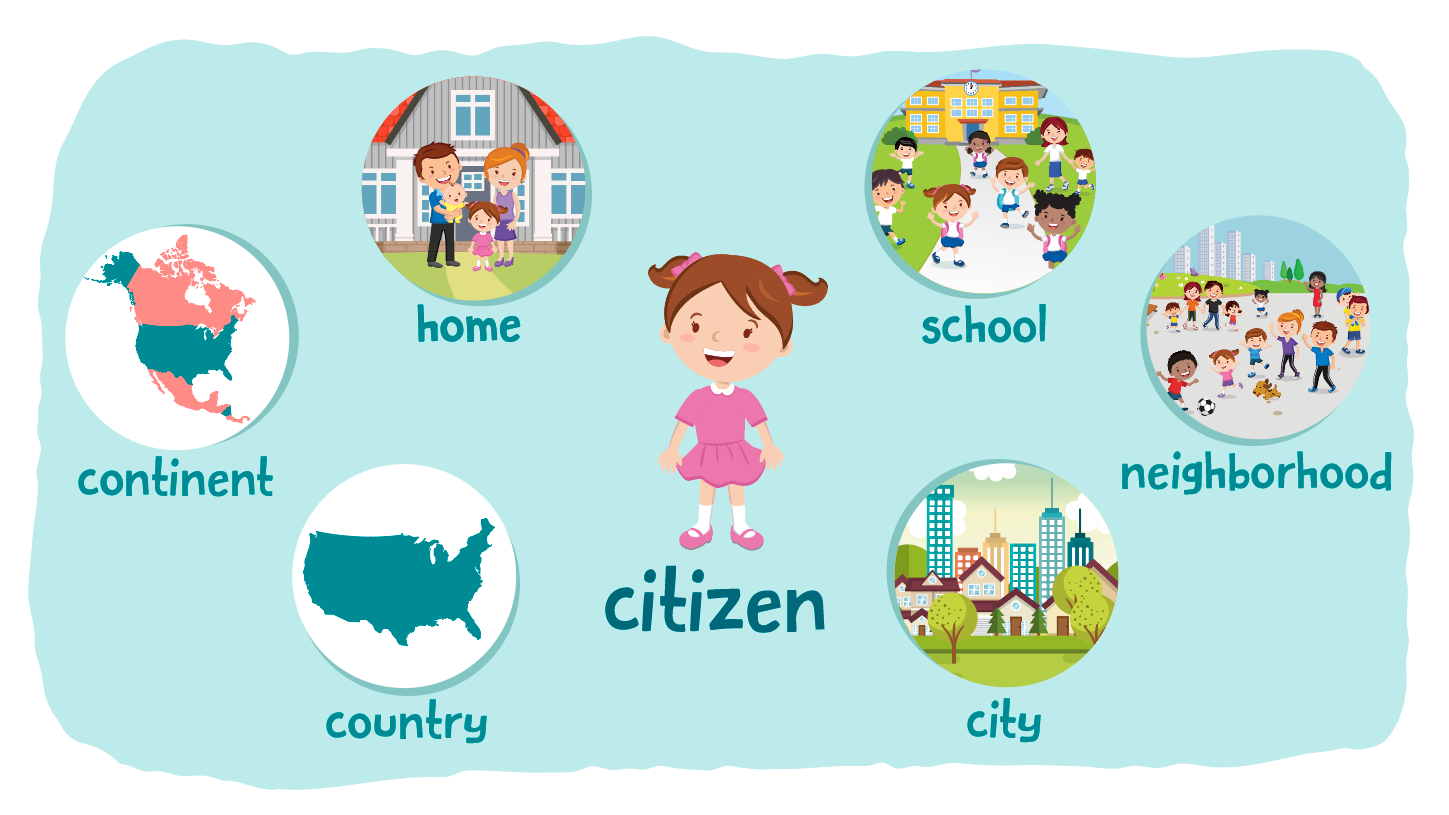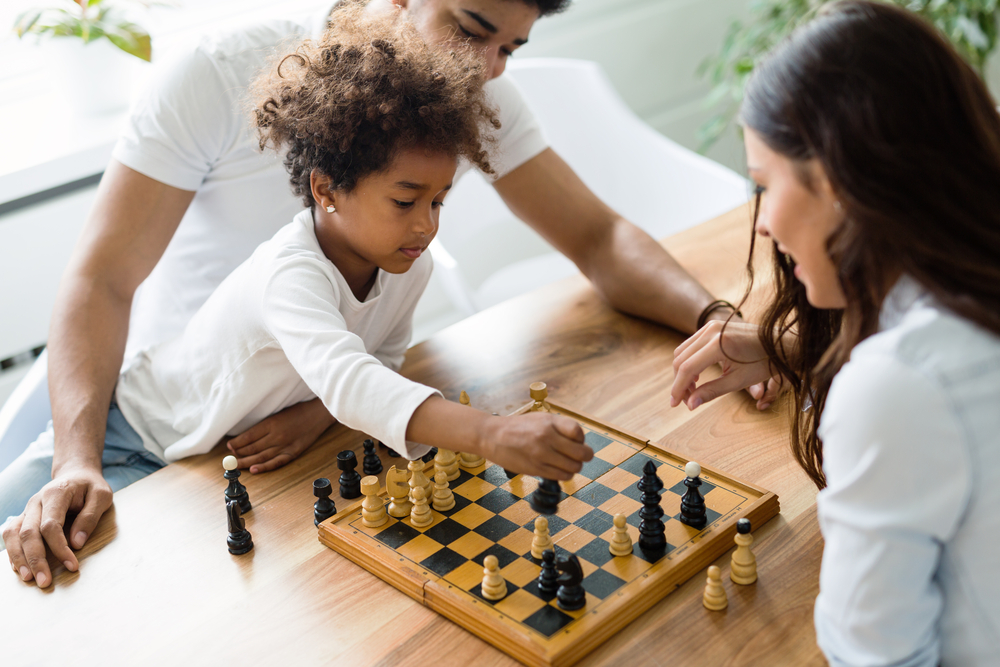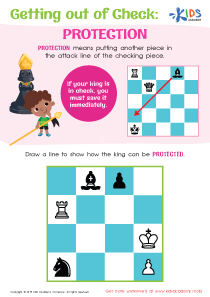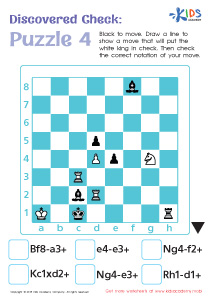Decision making skills Chess Worksheets
3 filtered results
-
From - To
Enhance your child's decision making skills with engaging Chess Worksheets from Kids Academy. These strategic lesson plans not only teach the timeless game of chess but also build critical thinking abilities, essential for everyday problem-solving. Through interactive exercises and puzzles, children learn to analyze situations, anticipate opponents' moves, and make informed decisions swiftly. Our carefully designed worksheets cater to all skill levels, making it enjoyable for beginners and advanced players alike. Equip your child with the tools to think ahead and develop a strategic mindset, setting a foundation for academic success and life-long learning. Explore our collection, and watch them grow!
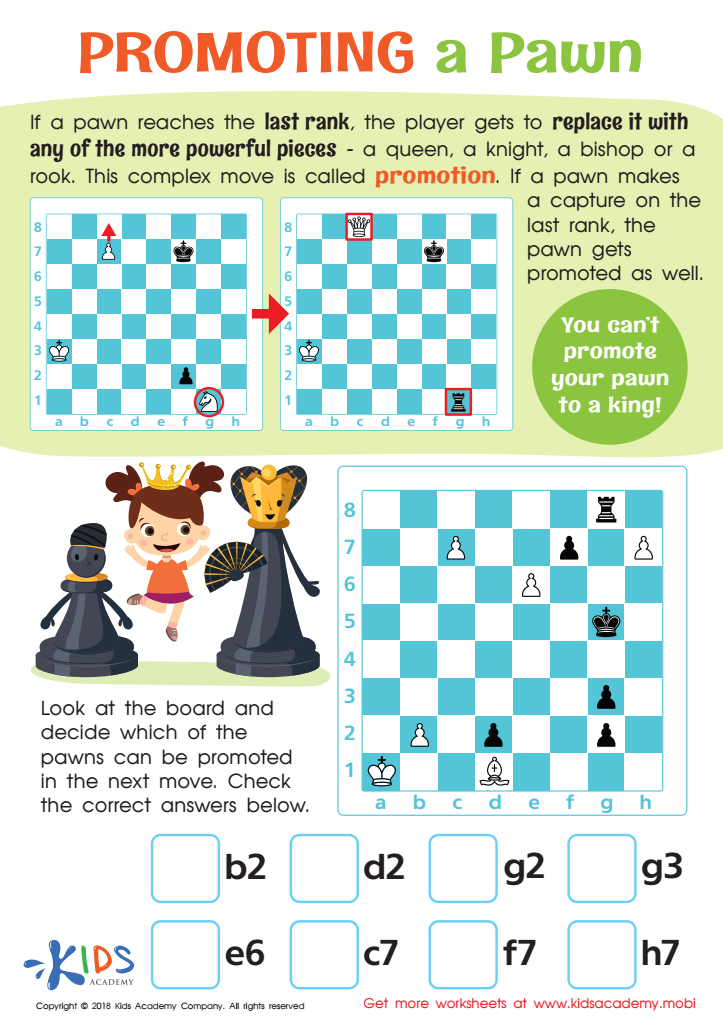

Promoting a Pawn Worksheet
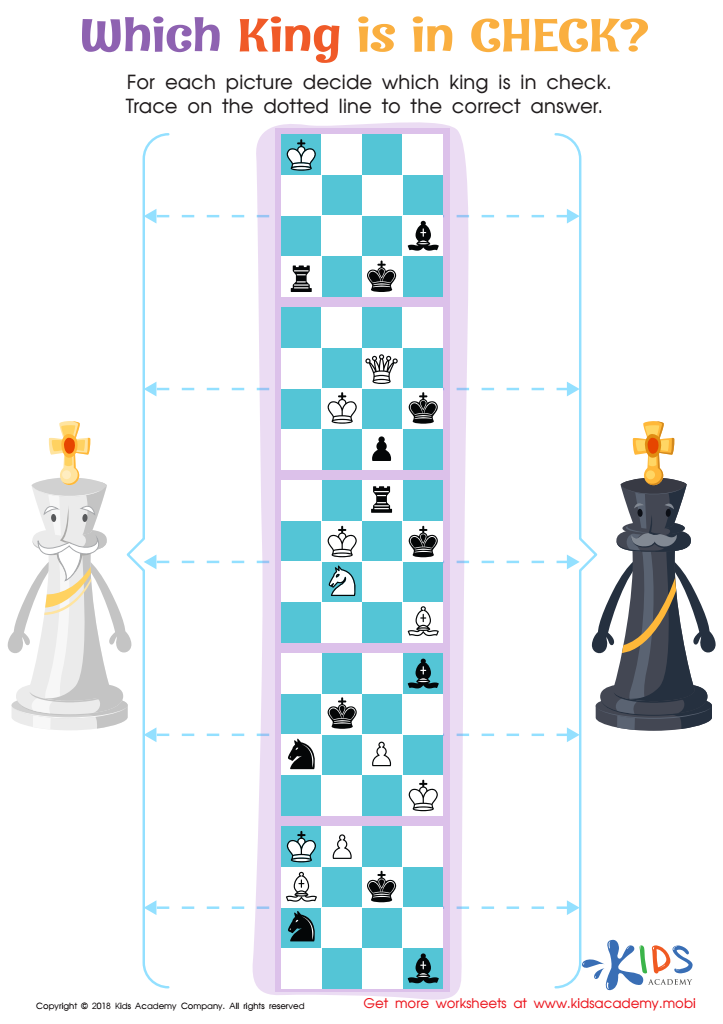

Which King is in Check? Worksheet
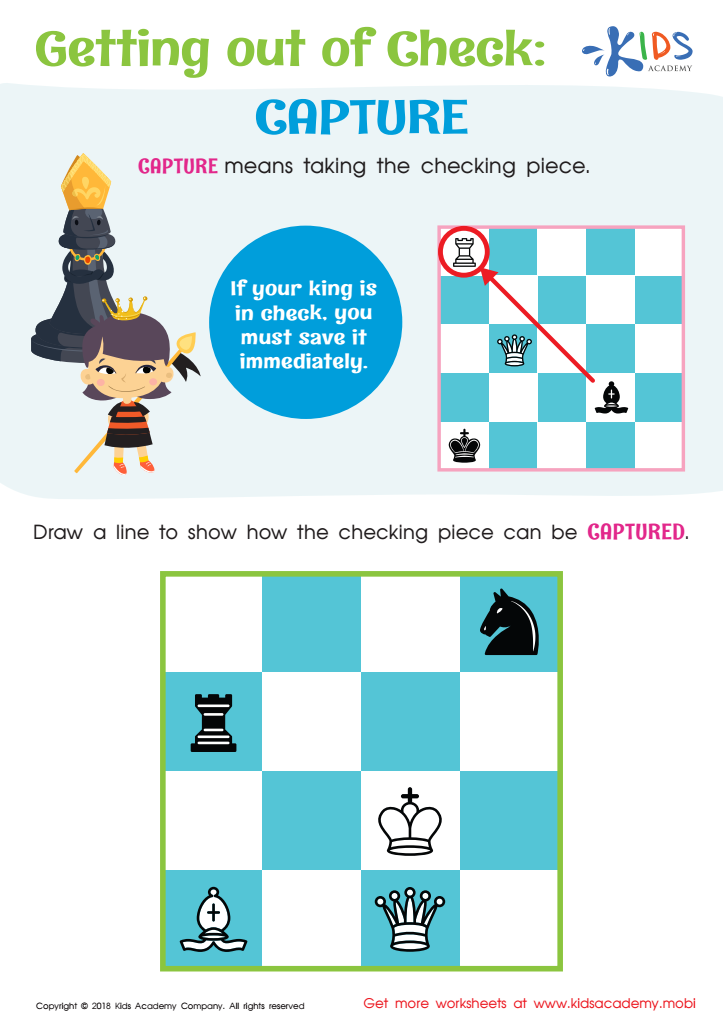

Getting out of Check: Capture
Parents and teachers should care about decision-making skills in chess because these skills are essential for cognitive and personal development in children. Chess demands strategic thinking, foresight, and problem-solving, fostering a child's ability to anticipate consequences and evaluate multiple pathways before choosing a course of action. These abilities translate into everyday situations, improving academic performance and social interactions.
Playing chess encourages critical thinking, teaching children to analyze options meticulously rather than acting on impulse. It nurtures patience and persistence, as each move involves significant contemplation and long-term planning. This mindful approach can enhance a child’s attention span and improve their ability to focus on detailed tasks.
Moreover, chess fosters resilience and adaptability. Facing losses and setbacks in the game helps children develop a growth mindset, learning to view challenges as opportunities for improvement. This attitude is crucial in overcoming academic difficulties and navigating life's ups and downs.
Additionally, chess promotes ethical decision-making and fairness, as players must abide by rules and respect their opponents. These values are indispensable in forming well-rounded, responsible individuals. By engaging children in chess, parents and teachers equip them with a toolkit of cognitive and emotional skills that are beneficial throughout life.

 Assign to My Students
Assign to My Students




